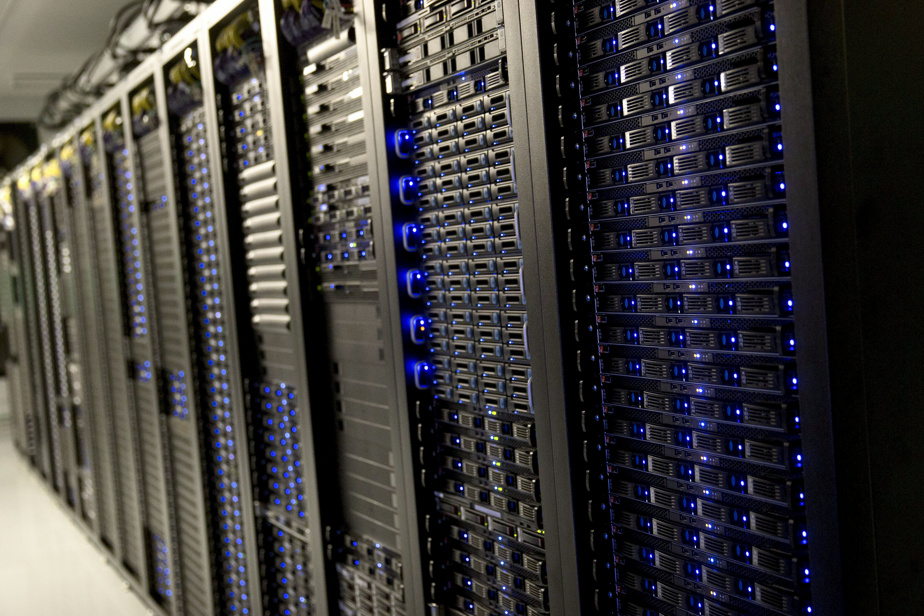Mustafa Suleyman remembers the key moment when he saw the potential of artificial intelligence. In 2016 – the prehistory of AI – DeepMind, the company he co-founded and sold in 2014 to Google, pitted its AI machine, AlphaGo, against a world champion of Go, a strategy game disconcertingly complex.
AlphaGo executed thousands of permutations in one go and dispatched the unfortunate human. Stunned, Suleyman said to himself that the machine had “apparently superhuman insight,” he writes in The Wave, his book on AI.
Today, no one finds this astonishing, but the implications are. A year after the launch of OpenAI’s ChatGPT consumer software, companies, investors and regulators are grappling with how to stem the technology that expressly aims to decommission them. The exact risks of generative AI are still debated, and it is still unclear which companies will dominate this sector. But one thing is certain: AI is transformative. “The level of innovation is very hard for people to imagine,” says Vinod Khosla, founder of Silicon Valley venture capital firm Khosla Ventures, an early bet on OpenAI. “Choose an area: publishing, film, music, products, oncology. The list is endless. »
In 2023, the world has discovered AI; 2024 could be the year when its technical and legal limits explode.
The many recent regulations will undoubtedly be re-examined. Among others, President Joe Biden’s executive order in October which, if ratified by Congress, will require companies to ensure that their AI systems cannot be used to make biological or nuclear weapons; to embed watermarks identifying AI-generated content; and to disclose to the government the names of their foreign clients.
At the AI summit in England in November, 28 countries – including China, but not Russia – agreed to work together to counter “catastrophic risks”. During marathon negotiations in December, the European Union drafted one of the first comprehensive bills aimed at limiting the use of AI. It restricts facial recognition and deepfakes, and regulates the use of AI by companies. The final text is expected in early 2024, and the bloc’s 27 member countries hope to approve it before European Parliament elections in June.
“It makes life difficult for innovators,” says Matt Clifford, who helped organize the AI summit in England.
States have good reasons to be interested in AI: anything can be misused. “The microphone enabled both the (Nazi) Nuremberg Congresses and the Beatles,” wrote Mr. Suleyman, who is now CEO of Inflection AI, which he co-founded in 2023 with Reid Hoffman, co-founder of LinkedIn. He fears that AI will become “uncontrolled and uncontrollable” when it surpasses humans. “Homo technologicus could be threatened by his invention. »
It is difficult to predict when this tipping point will arrive. Jensen Huang, CEO of Nvidia – which dominates the field of AI chips (its stock value tripled in 2023) – said in November 2023 that “there are a lot of things we can’t do yet TO DO “.
Mr Khosla believes that by 2024, AI will be capable of “reasoning”, a breakthrough allowing it to produce much more precise results. By 2025, he adds, “AI will have superior reasoning to intelligent community members.”
All this will be expensive, and it is questionable which companies will be able to sustain profitable AI activities. Of the 175,072 AI patents filed from 2012 to 2022, more than half were filed after 2019, according to Deutsche Bank. In 2024 and 2025, companies will mass adopt AI in human resources, marketing, sales and product development, also says Deutsche Bank. Already, law firms have started using AI-generated contracts, reducing the hours paid to lawyers. Last May, Deutsche Bank predicted “an impending explosion of AI innovation.”
Alongside technological advances, funding has exploded. For example, French start-up Mistral AI – Europe’s answer to OpenAI – has raised half a billion dollars in 2023, including $200 million from Silicon Valley venture capital giant Andreessen-Horowitz. This funding round values Mistral, founded just seven months ago, at $2 billion.
But this sum may not be enough to create a general-purpose AI system like ChatGPT, which MistralAI is aiming for.
“We are starting to see that it will take enormous sums of money to be in the race,” says Mr. Clifford. To create a versatile model, the money required might make traditional venture capitalists hesitate. »
